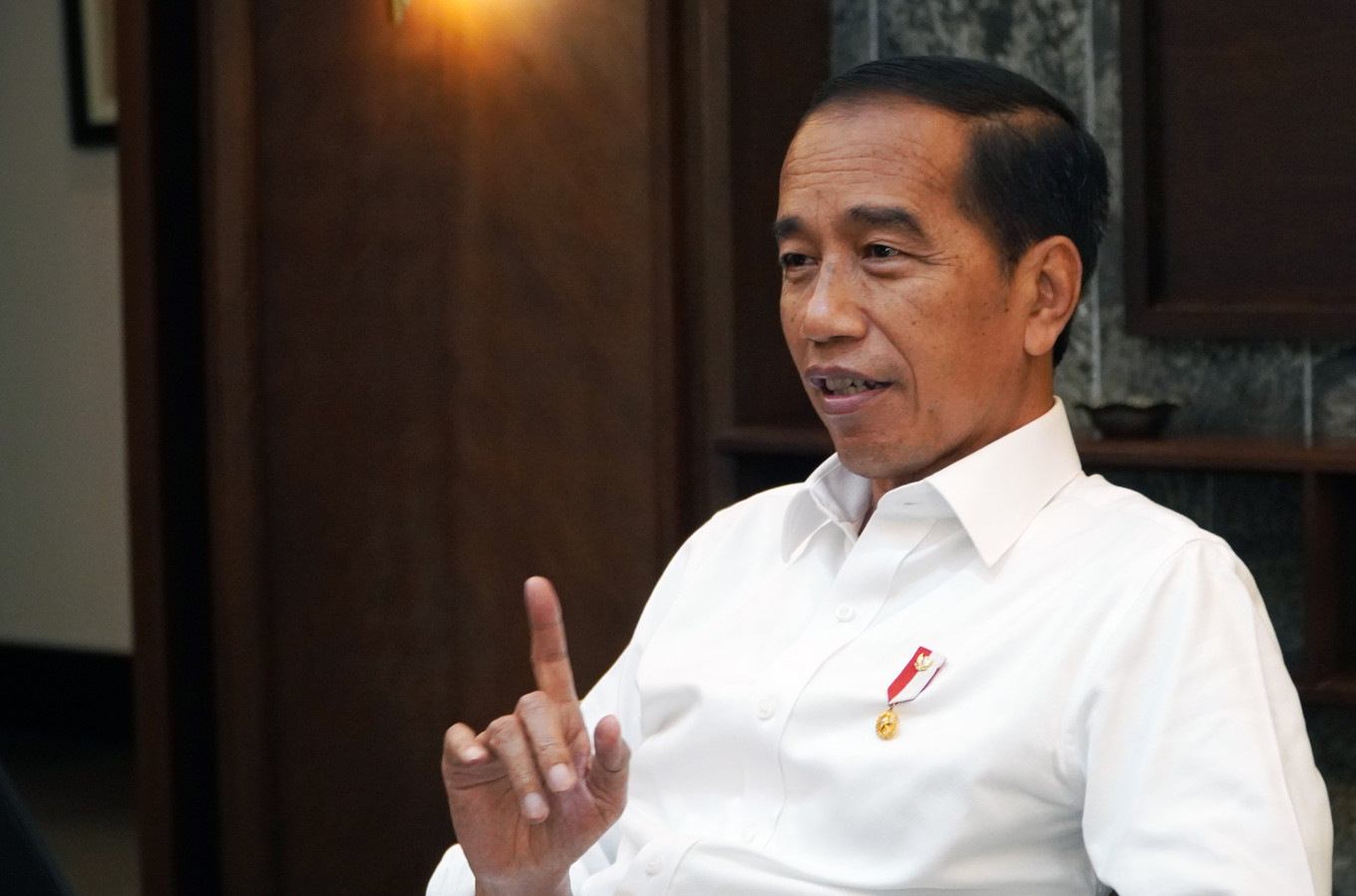Popular Reads
Top Results
Can't find what you're looking for?
View all search resultsPopular Reads
Top Results
Can't find what you're looking for?
View all search resultsAnalysis: Debt for Jokowi's infrastructure projects looms over 2024 budget
Change text size
Gift Premium Articles
to Anyone
F
or the last year of his final term in office, President Joko “Jokowi” Widodo has set ambitious targets in terms of economic growth, poverty reduction, job creation and reducing inequality, using the state budget as an instrument to achieve these. And yet, the budget continues to be burdened by rising debt and ballooning contingency allocations related to infrastructure projects.
Delivering the annual State of the Nation Address before the People's Consultative Assembly (MPR) on Aug. 26, President Jokowi outlined his 2024 targets of achieving 5.2 percent economic growth, around the same level as this year’s target, while reducing the poverty rate to 6.5-6.7 percent (from 9.36 percent as of March 2023), the unemployment rate to 5.0-5.7 percent (from 5.45 percent in February 2023), and decreasing the Gini index on income inequality to 0.374-0.377 (from 0.388 in March 2023).
To achieve these targets, Jokowi has proposed boosting next year’s budget spending by 8 percent to Rp 3.304 quadrillion (US$220.27 billion), up from 3.061 quadrillion in this year’s budget. Meanwhile, his administration aims to collect total revenues of Rp 2.781 quadrillion to result in a budget deficit of Rp 522.8 trillion, or 2.29 percent of the country’s gross domestic product (GDP), around the same as this year’s deficit.
Jokowi plans to finance the deficit primarily by issuing government bonds or sovereign debt papers (SBNs) totaling Rp 666.4 trillion, almost double this year’s projected SBN issuance of Rp 362.9 trillion. In addition to SBNs, the government plans to draw domestic loans of Rp 600 billion and foreign loans of 17.7 trillion in 2024. But next year’s debt financing target is actually lower than this year’s at Rp 696.3 trillion.
In addition to debt, the 2024 state budget includes a contingency allocation fund of Rp 203.6 trillion and $13 billion to cover the government’s guarantee for infrastructure projects, in case the project owners default on their debts. (See What’s more)
In terms of spending, the biggest portion of next year’s budget is slated for education at a total of Rp 660.8 trillion, the highest ever. This huge education budget is intended to fund programs that increase teachers’ competence, improve education access at all levels, strengthen ties between vocational education and the job market, and increase spending on research and development.
The next biggest portion goes to social protection with a total of Rp 493.5 trillion to cover social safety nets, targeted subsidies, improved data on subsidy beneficiaries through the Social Economic Registration (Regsoses) single system, and the elimination of extreme poverty by 2024. In addition, the government has allocated Rp 52 trillion to finance the salary increases Jokowi promised for civil servants, members of the military, police personnel and pensioners.



















